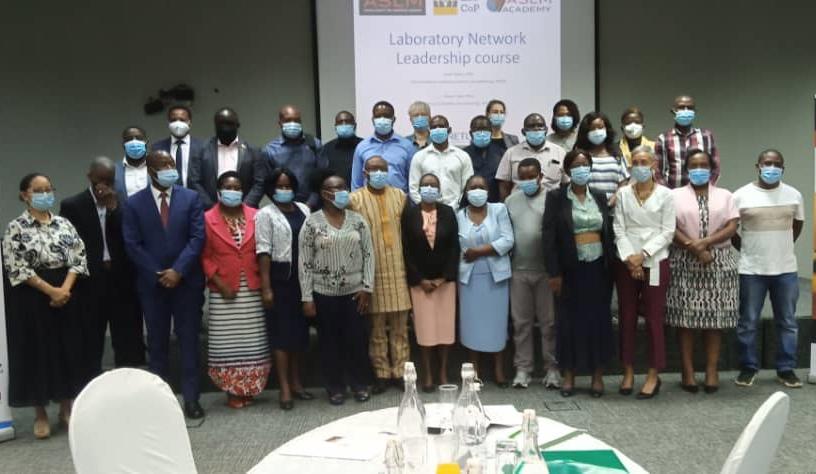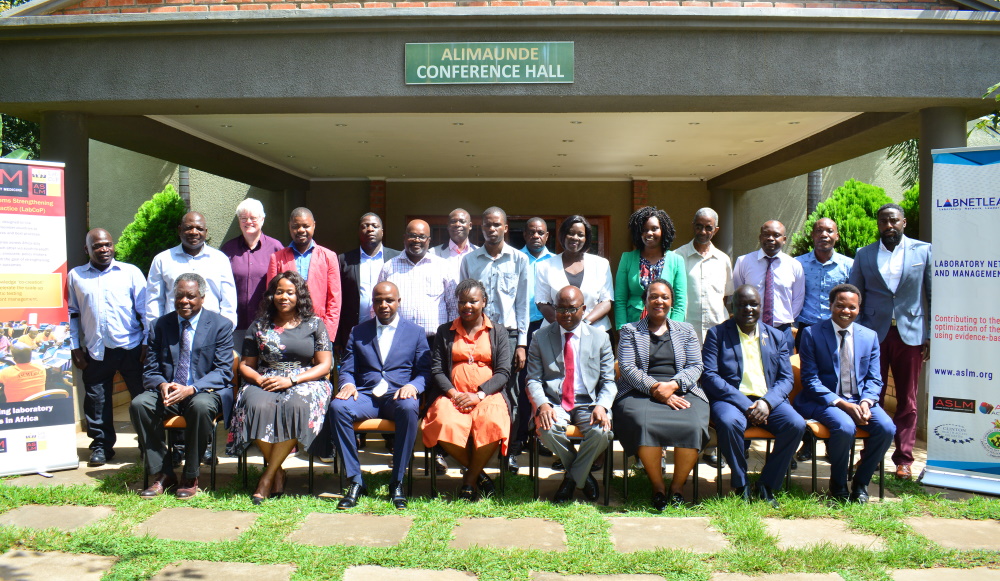As part of LabCoP, ASLM, Clinton Health Access Initiative, Foundation for Innovative New Diagnostics (FIND), and other partners have developed the Laboratory Network Leadership (LabNetLead) course to introduce concepts and activities essential to adequately design, optimise, lead and manage functional, high-quality laboratory networks. The course focuses on human health laboratory network management and is designed to complement the WHO Global Laboratory Leadership Program (GLLP) in Africa.
LabNetLead

How does LabNetLead work?
The course tours from country to country training members of national laboratory technical working groups or similar, representatives of selected regional laboratories, and future laboratory leaders who work in groups to improve the laboratory network capacity in their country. The course consists of five phases over a 9-month period that includes individual and group assignments with mentorship components, face-to-face training, and a final assessment that involves mini projects on improving the laboratory network functionality. The ASLM Academy issues a certificate of completion at the end of the program.
After this course, participants are able to:
- Explain the importance and potential benefits of a functional and well-coordinated national laboratory network
- Contribute to the development and optimisation of the laboratory network in their home country using evidence-based approaches
- Contribute to the implementation of the tiered-laboratory-networks planning cycles such as preparing, implementing, monitoring and evaluating tiered-laboratory network-related national laboratory policies, strategies and action plans
- Manage and supervise the laboratory network in their own country using appropriate soft skills
Case Studies
The pilots in Zimbabwe and Malawi ran concurrently with a Training-of-Trainers course. The first training-of-trainers batch included nine ASLM staff and two Zimbabwe technical working group members, who will be instrumental in rolling out the rest of the countries.
How to get involved
Interested countries should submit a letter from their Ministry of Health supporting their participation in the course and identify its members of the National Laboratory Technical Working Group or similar, and other potential participants. The maximum group size per country is 25, who will work as a team on improving the laboratory network in their country.
For more information, please contact Dr Collins Otieno here.



